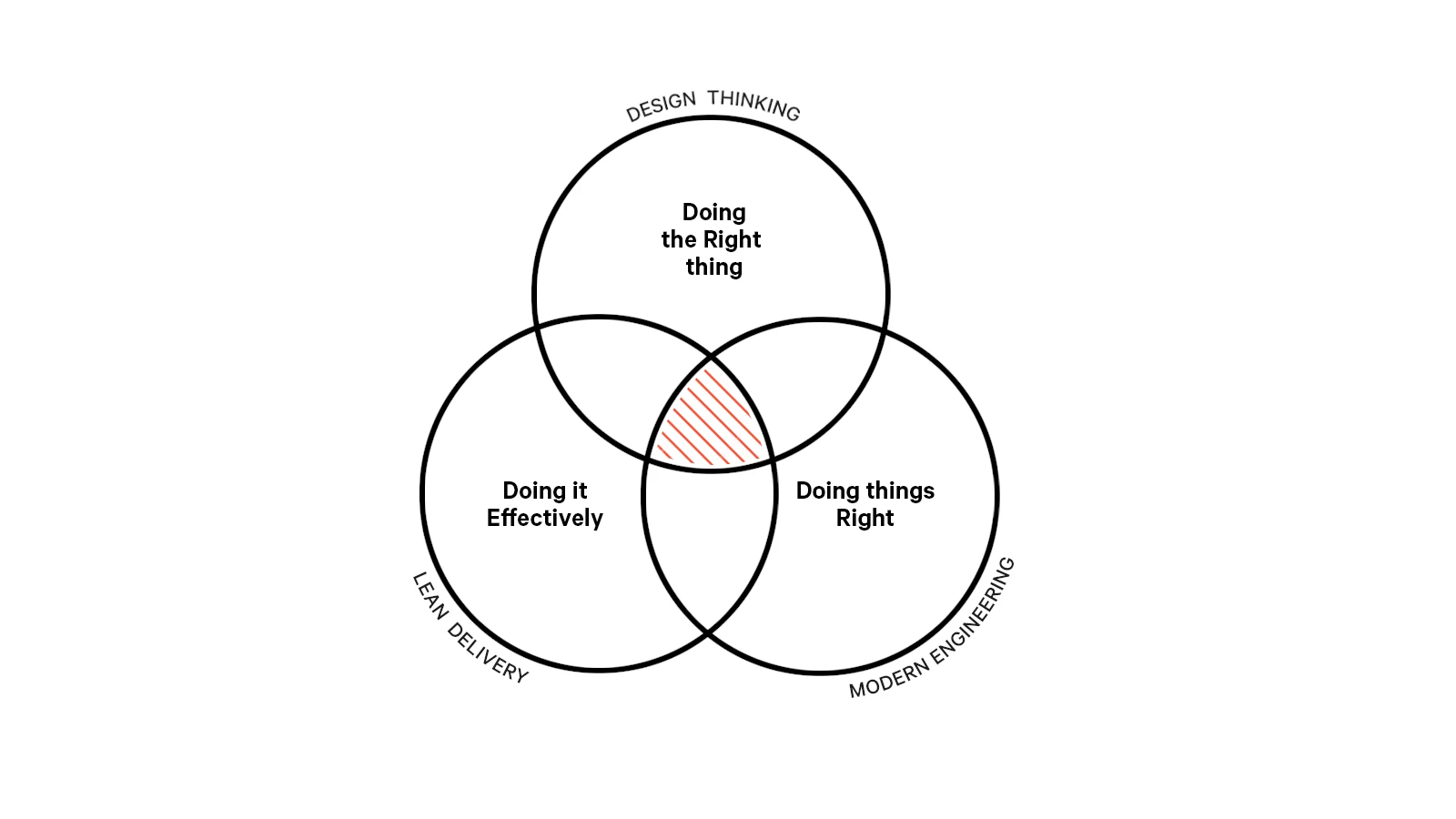
Partner Article
New report reveals organisational mindset driving digital effectiveness
A new survey into digital effectiveness has revealed that ‘Product Thinking’ is helping organisations become more digitally effective.
The survey carried out by digital agency Code Computerlove, a fore-runner of product thinking as an approach, found some clear differences in the attitude, behaviours and methodologies of top-performing business versus the mainstream when it comes to their digital products.
Key findings included: ? Top performing business are more likely to be looking to ‘increase customer lifetime value’ than their mainstream counterparts (68% vs. 47%). • For successful businesses, the numbers reporting a ‘focus on outcomes in delivery’ (75%) and a ‘focus on long-term goals versus short term targets’ (59%) were almost double that of underperforming businesses reporting the same behaviour. • 82% of high performers agree strongly with the statement “Focusing on user needs leads to better business outcomes”.
The research also found that 60% of top performers are satisfied with their ability to deliver digital products on time and on budget. Conversely, only 19% of the mainstream felt the same.
50% of top performing companies (vs. 38% mainstream) are currently aiming to speed up their performance and 69% adopt agile processes in development.
Commenting on the survey, Tony Foggett, CEO of Code Computerlove, said: “Product Thinking has emerged as a way in which organisations are navigating the need to deliver increased consumer centricity and agility using larger more complex, and business critical, technology platforms.
“It’s a way of achieving digital effectiveness as part of a digital transformation process, but it’s not just a question of adopting new digital tools and platforms, it’s the ways of thinking and organising teams around these tools and across an organisation as a whole.
“Taken together the aims and approaches of the top performing businesses that completed the survey reflect ‘product thinking’ - a mindset based on continually building value for the customer through an agile, non-siloed, digitally-savvy culture with clearly defined business goals.”
In its simplest form, Product Thinking is a drive for business effectiveness delivered by maximising value from digital touchpoints. It enables organisations to prioritise their efforts more effectively and immediately correlate investment with commercial return.
Foggett added: “It was interesting to see from the survey that top performing businesses had a stronger focus on value. 68 per cent can attribute return on investment to specific digital projects; three-quarters focus on outcomes in development and are happy to change requirements if needed (during the development process) and over half focus more on long-term goals rather than just short-term targets.”
Foggett concluded: “We’re undoubtedly in a period of change and the pace of this change means companies cannot afford to develop products and projects in the traditional ways. The structures and ways of thinking that dominated businesses in the late 20th century are not suited to the demands of the 21st.
“Our report has shown that businesses that have moved on from ‘big bang’ releases, and are taking a more long term, agile and customer-value approach – akin to Product Thinking, believe that this approach is paying dividends.”
The survey was carried out in partnership with Econsultancy and questioned 433 digital decision-makers based in the UK. Focusing on results given by client-side respondents it delved deeper into comparative responses given by top performing businesses (those that claim to be outperforming their competitors) versus the mainstream (who are not).
It was designed to not only discover how advanced companies are in their digital transformation, but to also assess how widely the ideas of product thinking have been adopted.
To access the full report visit https://www.codecomputerlove.com/blog/product-thinking-stats
This was posted in Bdaily's Members' News section by Kirsty Hunt .








 £100,000 milestone drives forward STEM work
£100,000 milestone drives forward STEM work
 Restoring confidence for the economic road ahead
Restoring confidence for the economic road ahead
 Ready to scale? Buy-and-build offers opportunity
Ready to scale? Buy-and-build offers opportunity
 When will our regional economy grow?
When will our regional economy grow?
 Creating a thriving North East construction sector
Creating a thriving North East construction sector
 Why investors are still backing the North East
Why investors are still backing the North East
 Time to stop risking Britain’s family businesses
Time to stop risking Britain’s family businesses
 A year of growth, collaboration and impact
A year of growth, collaboration and impact
 2000 reasons for North East business positivity
2000 reasons for North East business positivity
 How to make your growth strategy deliver in 2026
How to make your growth strategy deliver in 2026
 Powering a new wave of regional screen indies
Powering a new wave of regional screen indies
 A new year and a new outlook for property scene
A new year and a new outlook for property scene